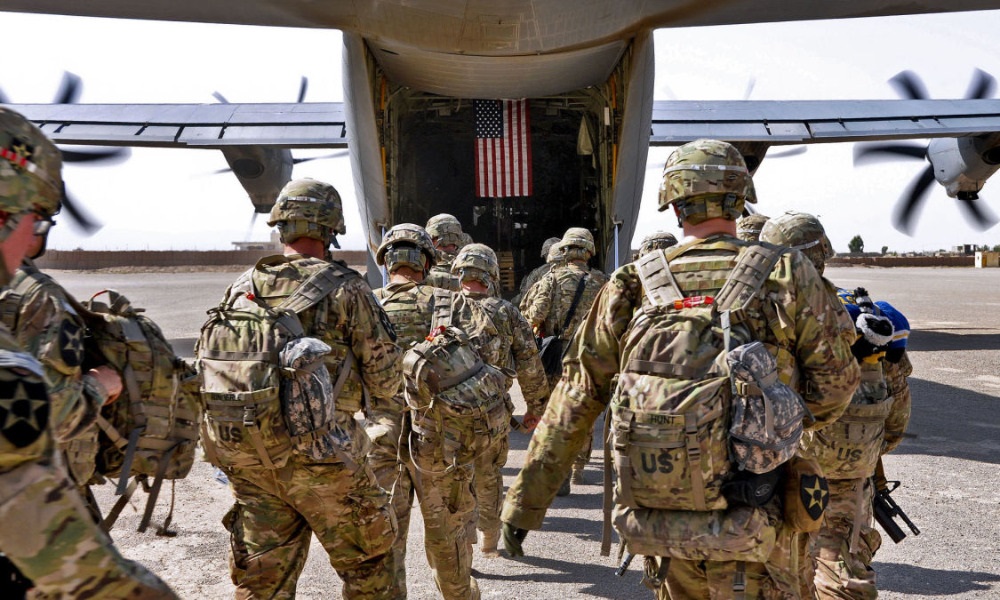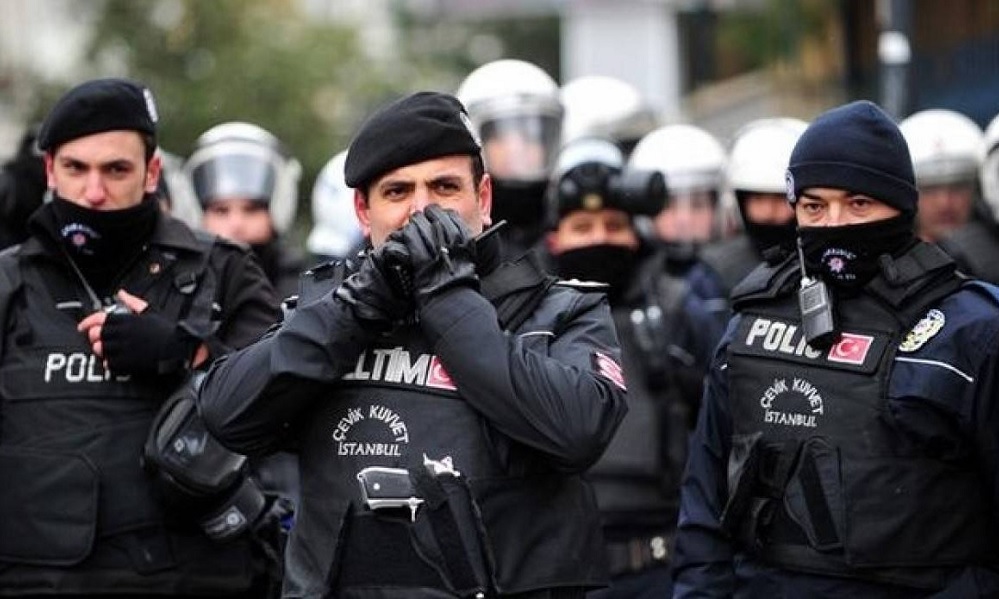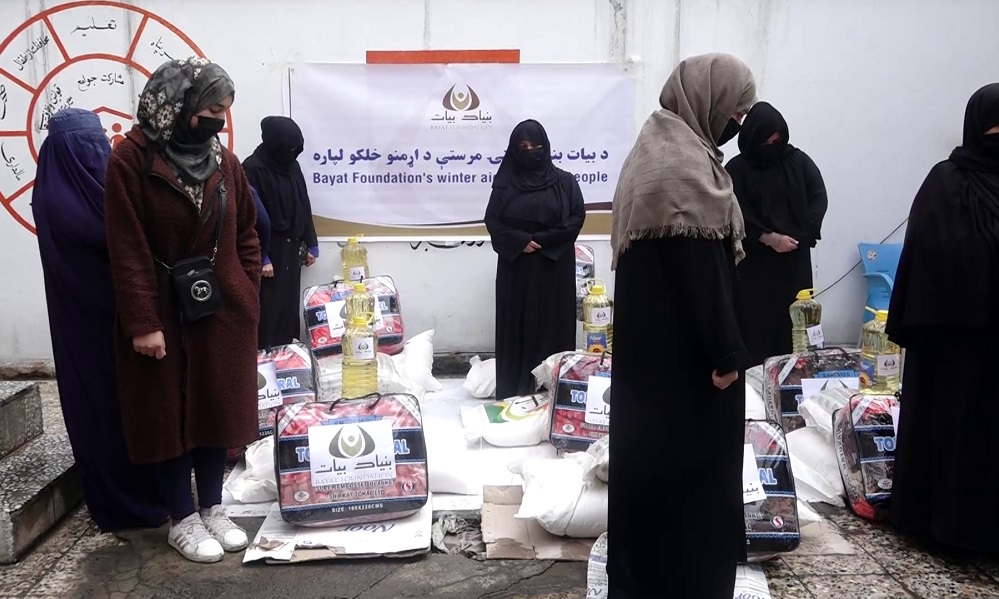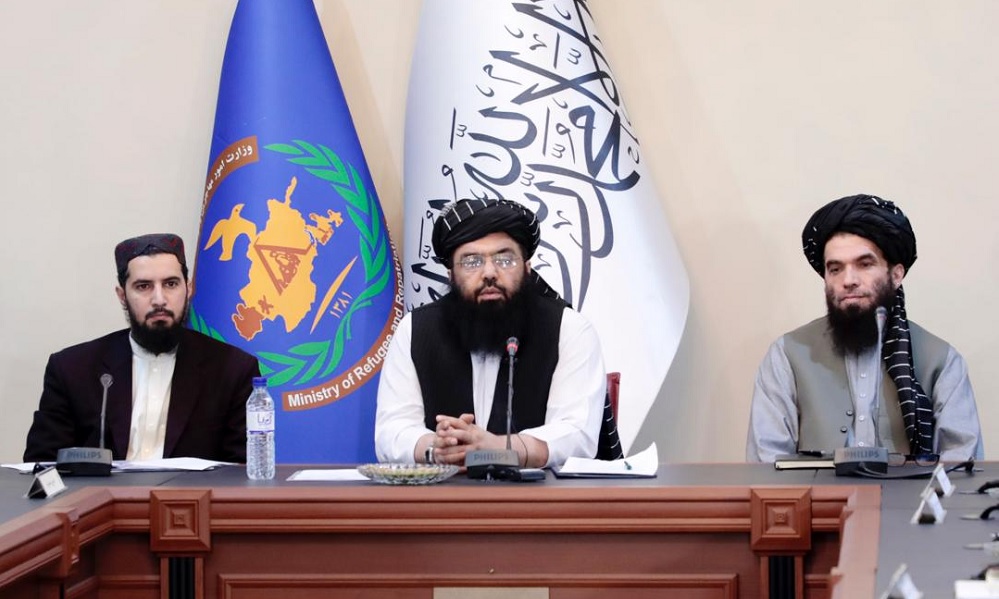Latest News
Taliban urges complete withdrawal in open letter to Americans

Taliban Deputy Leader Mullah Abdul Ghani Baradar says that there is no military solution to the long-term conflict in Afghanistan.
In an open letter to the people of the United States, Mullah Baradar stated: “The past nineteen years have proven beyond any doubt that the Afghan issue cannot be resolved through the use of force or by alternating military strategies and generals.”
Baradar emphasized that the people of Afghanistan are dealing with an “imposed war.”
“It is the responsibility and in the interest of all to bring an end to this war and the implementation of the Doha agreement is the most effective way of ending it,” the letter read.
The US and the Taliban signed an agreement on February 29, 2020, aimed at bringing peace to Afghanistan.
According to the deal, the US committed to withdrawing all its forces within the 14 months of the agreement. In exchange, the Taliban pledged to cut ties with terrorist groups including Al-Qaeda, and begin negotiations with the government of Afghanistan.
Mullah Baradar stated that the US-Taliban deal “with the aim that all foreign military forces along with their non-diplomatic personnel, private contractors, advisors, trainers and service providers withdraw from Afghanistan within a 14-month timeframe, while the Islamic Emirate [Taliban] would reciprocate by committing itself to prevent all threats to the security of other nations from Afghanistan.”
As per the Doha deal, the US needed to reduce its troop levels to 2,500 by December 2020 and direct talks needed to start between the Afghan government and the Taliban negotiating teams – which happened in September 2020.
Although the two sides held several meetings, they did not reach an agreement over the agenda of the intra-Afghan talks. The negotiations have since stalled and some members of the Republic’s peace team have returned to Kabul.
Meanwhile, some politicians believe that the peace talks’ failure could plunge the country into a new crisis.
“We are at a milestone, if we consider it, it is possible to reach a desirable solution. Otherwise, there would not be a war but we would witness a bigger crisis. Because both sides could use all their forces,” Ali Ahmad Osmani, a former cabinet member said.
Latest News
Turkish intelligence captures a Daesh member near the Durand Line

Turkish intelligence agents have captured a senior member of Daesh near the Durand Line, reportedly preventing planned suicide attacks in Turkey and other countries, according to Turkey’s state-run Anadolu Agency on Monday.
The suspect, identified as Mehmet Goren, is a Turkish citizen. He was apprehended during a covert operation and transferred to Turkey. Details on the timing of the operation or the involvement of Afghan and Pakistani authorities were not disclosed.
According to the report, Goren had risen through the ranks of Daesh and was allegedly tasked with carrying out suicide bombings in Turkey, Pakistan, Afghanistan, and Europe.
Daesh has a history of deadly attacks in Turkey, including the January 1, 2017 shooting at an Istanbul nightclub that killed 39 people.
Anadolu Agency reported that Goren’s arrest also provided intelligence on the group’s recruitment strategies and planned activities.
Latest News
Dozens of needy families in Kabul receive winter aid from Bayat Foundation

Dozens of needy families in Kabul’s fifth district have received essential winter assistance from the Bayat Foundation, as part of ongoing efforts to ease hardship during the cold season and worsening economic conditions.
According to foundation officials, the aid package includes staple food items such as flour, rice, and cooking oil, along with warm blankets to help families cope with freezing temperatures. Haji Mohammad Ismail, Deputy Head of Bayat Foundation, said the distribution began in Kabul and will soon be expanded to other provinces.
“Our assistance includes flour, rice, cooking oil, and blankets,” Ismail said. “Today, we started distributing these items in Kabul’s fifth district, and God willing, the aid will reach other provinces in the near future.”
Afghanistan continues to face widespread poverty, unemployment, and food insecurity, with many families struggling to meet basic needs, particularly during winter when access to work and heating becomes more difficult.Humanitarian organizations and charitable foundations have stepped up relief efforts to support those most affected.
Beneficiaries welcomed the assistance, describing it as a lifeline. “May God bless you for helping the poor. We had nothing and no work,” said one recipient. Another added, “Thank you for your help. Our flour was almost finished.”
Bayat Foundation officials stressed that winter aid distributions will continue in Kabul and other provinces in the coming days, as part of their broader commitment to supporting needy families across the country.
Latest News
Nearly seven million Afghan refugees return home since Islamic Emirate’s takeover

Since the Islamic Emirate came to power, approximately 6.8 million Afghans have returned home, either voluntarily or forcibly, from neighboring countries and other nations, according to the Minister of Refugees and Repatriation.
Mawlawi Abdul Kabir, speaking at a meeting on finalizing a draft plan for a permanent migration solution in Afghanistan, added that 1.3 million Afghans have been internally displaced due to natural disasters during the same period.
With winter approaching, widespread poverty and severe cold are threatening thousands of lives. Meanwhile, the forced expulsion of Afghan migrants from neighboring countries, particularly Iran and Pakistan, continues.
The Islamic Emirate has repeatedly urged neighboring states to allow migrants to return voluntarily. According to UNHCR, over two million Afghans have returned from Iran and Pakistan since the start of 2025.
-

 Latest News3 days ago
Latest News3 days agoAfghan border forces prevent illegal entry of hundreds into Iran
-

 Latest News3 days ago
Latest News3 days agoPakistan summons Afghan diplomat over deadly attack in North Waziristan
-

 Latest News1 day ago
Latest News1 day agoAfghanistan signs 30-year deal for marble mining in Daikundi
-

 Latest News2 days ago
Latest News2 days agoAfghan health minister calls for medical cooperation between Kabul and New Delhi
-

 Latest News3 days ago
Latest News3 days agoJapan allocates nearly $20 million in humanitarian aid for Afghanistan
-

 Latest News3 days ago
Latest News3 days agoKarzai urges reopening of girls’ schools and universities for Afghanistan’s bright future
-

 Health5 days ago
Health5 days agoAfghanistan seeks India’s support in standardizing traditional medicine
-

 World5 days ago
World5 days agoUS readies new Russia sanctions if Putin rejects peace deal, Bloomberg News reports
























